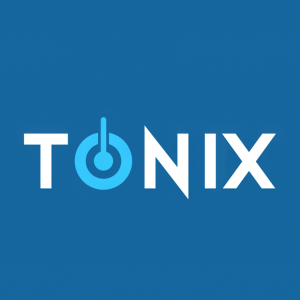Tonix Pharmaceuticals Announces First Patient Dosed in the Investigator-Initiated FOCUS Study of Tonix’s Intranasal Potentiated Oxytocin in AVP-D Conducted by Massachusetts General Hospital
Rhea-AI Summary
Tonix Pharmaceuticals (Nasdaq: TNXP) announced the first patient has been dosed in the investigator‑initiated FOCUS study at Massachusetts General Hospital on Oct 22, 2025. The randomized, double‑blind, placebo‑controlled crossover pilot will evaluate Tonix's intranasal potentiated oxytocin products TNX-2900 (6 IU) and TNX-1900 (24 IU) in adults with arginine‑vasopressin deficiency (AVP‑D), a rare endocrine disorder formerly called central diabetes insipidus.
The study will measure single‑dose effects on anxiety, depression, and socioemotional functioning and include an exploratory two‑week replacement analysis to generate preliminary data to inform future clinical studies.
Positive
- First patient dosed in FOCUS study at MGH (milestone)
- Randomized, double‑blind, placebo‑controlled crossover design
- Two fixed single doses: 6 IU (TNX-2900) and 24 IU (TNX-1900)
- Exploratory two‑week replacement analysis on mental health outcomes
Negative
- FOCUS is a pilot study intended to generate preliminary data
- Outcomes are exploratory and not sufficient for immediate approval
News Market Reaction
On the day this news was published, TNXP declined 4.16%, reflecting a moderate negative market reaction.
Data tracked by StockTitan Argus on the day of publication.
FOCUS is a randomized, double-blind, placebo-controlled crossover pilot study evaluating Tonix’s investigational intranasal potentiated oxytocin products in patients with Arginine-Vasopressin Deficiency (AVP-D)
The trial is intended to generate preliminary data to inform future potential clinical studies of oxytocin replacement therapy in AVP-D
CHATHAM, N.J., Oct. 22, 2025 (GLOBE NEWSWIRE) -- Tonix Pharmaceuticals Holding Corp. (Nasdaq: TNXP) (“Tonix” or the “Company”), a fully integrated biotechnology company with marketed products and a pipeline of development candidates, today announced that the first patient has been dosed in the investigator-initiated FOCUS study (NCT04789148) at Massachusetts General Hospital (MGH) in adult patients with arginine-vasopressin deficiency (AVP-D), a rare endocrine disorder associated with oxytocin deficiency and adverse mental health outcomes, formerly known as central diabetes insipidus.
“Patients with AVP-D often experience mental health and quality-of-life challenges that are not adequately addressed by current interventions,” said Seth Lederman, M.D., Chief Executive Officer of Tonix Pharmaceuticals. “Oxytocin plays an important role in regulating mood and socioemotional functioning, and evidence suggests that AVP-D is associated with oxytocin deficiency. We are pleased to support the FOCUS study at MGH, which will evaluate our investigational intranasal potentiated oxytocin products (TNX-1900/TNX-2900) in this population and may help lay the groundwork for future studies of oxytocin replacement therapy.”
“The FOCUS study uses a randomized, placebo-controlled crossover design that enables within-patient comparisons of placebo and investigational intranasal potentiated oxytocin product at different doses,” said Elizabeth Lawson, M.D., M.M.Sc., principal investigator of the study and Director, Interdisciplinary Oxytocin Research Program in the Neuroendocrine Unit, Department of Medicine at MGH. “This approach will provide critical first data to inform future larger-scale clinical trials for patients with AVP-D. Ultimately, our goal is to generate insights that can lead to better treatments and improved quality of life for patients living with this condition.”
The FOCUS study (Feasibility of Oxytocin for Clinical Use and Socioemotional wellbeing) is a randomized, double-blind, placebo-controlled crossover pilot study that will evaluate single-dose investigational intranasal potentiated oxytocin product at two different doses (6 IU, TNX-2900 and 24 IU, TNX-1900) on markers of anxiety, depression, and socioemotional functioning in patients with AVP-D, formerly known as central diabetes insipidus. An exploratory analysis will assess the effects of two weeks of the investigational products replacement on mental health outcomes.
About Tonix’s Potentiated Oxytocin Platform (TNX-1900 and TNX-2900)
TNX-1900 and TNX-2900 are based on Tonix’s patented intranasal Mg2+-potentiated oxytocin formulations. Both are drug-device combination products, each with an intranasal actuator device that delivers oxytocin into the nasal cavity. TNX-1900 is a proprietary formulation of oxytocin in development as a candidate for prevention of chronic migraine and other conditions. TNX-2900 is in development for use by children and adolescents with Prader-Willi syndrome. The formulations will also be developed for craniofacial pain conditions. Tonix has a license with the University of Geneva for the use of the intranasal potentiated oxytocin products in the treatment of insulin resistance and related conditions. The addition of magnesium to the oxytocin formulation enhances oxytocin receptor binding1,2 as well as oxytocin’s inhibitory effects on trigeminal neurons and resultant craniofacial analgesic effects, as demonstrated in animal models3. Intranasal oxytocin has been shown to be well tolerated in several clinical trials in both adults and children3. Targeted nasal delivery results in low systemic exposure4,5 and lower risk of non-CNS, off-target effects. Oxytocin is a naturally occurring human peptide hormone that also acts as a neurotransmitter within the central nervous system (CNS). It is believed to be more than 600 million years old and is present in vertebrates including mammals, birds, reptiles, amphibians, and fish. Oxytocin also has no recognized addiction potential. It was initially approved by the U.S. Food and Drug Administration as Pitocin®, an intravenous infusion or intramuscular injection drug, for use in pregnant women to induce labor and control postpartum bleeding or hemorrhage. An intranasal formulation of oxytocin is marketed in some European countries to assist in breast milk production as Syntocinon® (oxytocin nasal 40 international units/ml).
1Meyerowitz JG, et al. Nat Struct Mol Biol. 2022. 29(3):274-281.
2Bharadwaj VN, et al. Pharmaceutics. 2022 14(5):1105.
3Bharadwaj VN, et al. Pharmaceutics. 2021. Jul 16;13(7):1088.
4Yeomans, DC et al. 2017. US patent US2017368095
5Shafer SL, et al. Br J Anaesth. 2025. 134(5):1513-1522.
Investigator-Initiated Studies Using TNX-1900 at Mass General Hospital (MGH)
In addition to the recently initiated FOCUS study, Dr. Lawson has three other ongoing investigator-initiated trials using TNX-1900.
The STROBE (STRategy of Oxytocin for Binge Eating) study is a Phase 2 randomized, double blind, placebo-controlled study to evaluate the efficacy and safety of TNX-1900 for the treatment of binge-eating disorder in adults. The 8-week trial has a target enrollment of at least 60 participants 18-70 years old with binge-eating. Subjects are randomized to receive TNX-1900 or placebo and are studied at MGH. Subjects self-administer TNX-1900 or placebo as two sprays total (one spray in each nostril) up to four times per day for 8 weeks. The primary endpoint is 8-week change from baseline in binge frequency. For more information, see ClinicalTrials.gov Identifier: NCT05664516.
The POWER (Pediatric Oxytocin Weight and Energy Research) study is a Phase 2 randomized, double blind, placebo-controlled study to evaluate the efficacy and safety of TNX-1900 for the treatment of pediatric obesity. The 12-week trial has a target enrollment of 75 participants 12-18 years old with obesity (BMI ≥95th percentile for age and gender). Subjects are randomized to receive TNX-1900 or placebo. Subjects self-administer TNX-1900 or placebo as two sprays total (one spray in each nostril) before meals and at bedtime for 12 weeks. The primary endpoint is 12-week change in body mass index standard deviation score (BMI-SDS) versus placebo. For more information, see ClinicalTrials.gov Identifier: NCT04551482.
The BOX (Bone Oxytocin) study is a Phase 2, randomized, placebo-controlled study to evaluate the effects of twice daily administration of TNX-1900 on bone measures in children with autism spectrum disorder. Study subjects, ages six to 18 years old, are randomized 1:1 to receive TNX-1900 twice per day or placebo for 12 months in the double-blind phase, followed by a six-month open label phase during which all study subjects receive TNX-1900 twice daily. The primary endpoint is the difference between TNX-1900 compared to placebo groups in 12-month change in whole body (less head bone) mineral density Z-scores. A Z-score compares one’s bone density to the average bone density of age and sex matched controls. For more information, see ClinicalTrials.gov Identifier: NCT05754073.
Tonix Pharmaceuticals Holding Corp.*
Tonix Pharmaceuticals is a fully-integrated biotechnology company with marketed products and a pipeline of development candidates. Tonix has received FDA approval for Tonmya™, a first-in-class, non-opioid analgesic medicine for the treatment of fibromyalgia, a chronic pain condition that affects millions of adults. This marks the first approval for a new prescription medicine for fibromyalgia in more than 15 years. Tonix also markets two treatments for acute migraine in adults. Tonix’s development portfolio is focused on central nervous system (CNS) disorders, immunology, immuno-oncology, rare disease and infectious disease. TNX-102 SL is being developed to treat acute stress reaction and acute stress disorder under a Physician-Initiated IND at the University of North Carolina in the OASIS study funded by the U.S. Department of Defense (DoD). TNX-102 SL is also in development for major depressive disorder. Tonix’s immunology development portfolio consists of biologics to address organ transplant rejection, autoimmunity and cancer, including TNX-1500, which is an Fc-modified humanized monoclonal antibody targeting CD40-ligand (CD40L or CD154) being developed for the prevention of allograft rejection and for the treatment of autoimmune diseases. Tonix’s rare disease portfolio includes TNX-2900, intranasal oxytocin potentiated with magnesium, in development for Prader-Willi syndrome. Tonix’s infectious disease portfolio includes TNX-801, a vaccine in development for mpox and smallpox, as well as TNX-4800, a monoclonal antibody for the seasonal prevention of Lyme Disease. Finally, TNX-4200 for which Tonix has a contract with the U.S. DoD’s Defense Threat Reduction Agency (DTRA) for up to
* Tonix’s product development candidates are investigational new drugs or biologics; their efficacy and safety have not been established and have not been approved for any indication.
This press release and further information about Tonix can be found at www.tonixpharma.com.
Forward Looking Statements
Certain statements in this press release are forward-looking within the meaning of the Private Securities Litigation Reform Act of 1995. These statements may be identified by the use of forward-looking words such as “anticipate,” “believe,” “forecast,” “estimate,” “expect,” and “intend,” among others. These forward-looking statements are based on Tonix's current expectations and actual results could differ materially. There are a number of factors that could cause actual events to differ materially from those indicated by such forward-looking statements. These factors include, but are not limited to, risks related to the failure to successfully launch and commercialize Tonmya and any of our approved products; risks related to the failure to obtain FDA clearances or approvals and noncompliance with FDA regulations; risks related to the timing and progress of clinical development of our product candidates; our need for additional financing; uncertainties of patent protection and litigation; uncertainties of government or third party payor reimbursement; limited research and development efforts and dependence upon third parties; and substantial competition. As with any pharmaceutical under development, there are significant risks in the development, regulatory approval and commercialization of new products. Tonix does not undertake an obligation to update or revise any forward-looking statement. Investors should read the risk factors set forth in the Annual Report on Form 10-K for the year ended December 31, 2024, as filed with the Securities and Exchange Commission (the “SEC”) on March 18, 2025, and periodic reports filed with the SEC on or after the date thereof. All of Tonix's forward-looking statements are expressly qualified by all such risk factors and other cautionary statements. The information set forth herein speaks only as of the date thereof.
Investor Contacts
Jessica Morris
Tonix Pharmaceuticals
investor.relations@tonixpharma.com
(862) 799-8599
Brian Korb
astr partners
(917) 653-5122
brian.korb@astrpartners.com
Media Contact
Ray Jordan
Putnam Insights
ray@putnaminsights.com
INDICATION
TONMYA is indicated for the treatment of fibromyalgia in adults.
CONTRAINDICATIONS
TONMYA is contraindicated:
In patients with hypersensitivity to cyclobenzaprine or any inactive ingredient in TONMYA. Hypersensitivity reactions may manifest as an anaphylactic reaction, urticaria, facial and/or tongue swelling, or pruritus. Discontinue TONMYA if a hypersensitivity reaction is suspected.
With concomitant use of monoamine oxidase (MAO) inhibitors or within 14 days after discontinuation of an MAO inhibitor. Hyperpyretic crisis seizures and deaths have occurred in patients who received cyclobenzaprine (or structurally similar tricyclic antidepressants) concomitantly with MAO inhibitors drugs.
During the acute recovery phase of myocardial infarction, and in patients with arrhythmias, heart block or conduction disturbances, or congestive heart failure.
In patients with hyperthyroidism.
WARNINGS AND PRECAUTIONS
Embryofetal toxicity: Based on animal data, TONMYA may cause neural tube defects when used two weeks prior to conception and during the first trimester of pregnancy. Advise females of reproductive potential of the potential risk and to use effective contraception during treatment and for two weeks after the final dose. Perform a pregnancy test prior to initiation of treatment with TONMYA to exclude use of TONMYA during the first trimester of pregnancy.
Serotonin syndrome: Concomitant use of TONMYA with selective serotonin reuptake inhibitors (SSRIs), serotonin norepinephrine reuptake inhibitors (SNRIs), tricyclic antidepressants, tramadol, bupropion, meperidine, verapamil, or MAO inhibitors increases the risk of serotonin syndrome, a potentially life-threatening condition. Serotonin syndrome symptoms may include mental status changes, autonomic instability, neuromuscular abnormalities, and/or gastrointestinal symptoms. Treatment with TONMYA and any concomitant serotonergic agent should be discontinued immediately if serotonin syndrome symptoms occur and supportive symptomatic treatment should be initiated. If concomitant treatment with TONMYA and other serotonergic drugs is clinically warranted, careful observation is advised, particularly during treatment initiation or dosage increases.
Tricyclic antidepressant-like adverse reactions: Cyclobenzaprine is structurally related to TCAs. TCAs have been reported to produce arrhythmias, sinus tachycardia, prolongation of the conduction time leading to myocardial infarction and stroke. If clinically significant central nervous system (CNS) symptoms develop, consider discontinuation of TONMYA. Caution should be used when TCAs are given to patients with a history of seizure disorder, because TCAs may lower the seizure threshold. Patients with a history of seizures should be monitored during TCA use to identify recurrence of seizures or an increase in the frequency of seizures.
Atropine-like effects: Use with caution in patients with a history of urinary retention, angle-closure glaucoma, increased intraocular pressure, and in patients taking anticholinergic drugs.
CNS depression and risk of operating a motor vehicle or hazardous machinery: TONMYA monotherapy may cause CNS depression. Concomitant use of TONMYA with alcohol, barbiturates, or other CNS depressants may increase the risk of CNS depression. Advise patients not to operate a motor vehicle or dangerous machinery until they are reasonably certain that TONMYA therapy will not adversely affect their ability to engage in such activities.
Oral mucosal adverse reactions: In clinical studies with TONMYA, oral mucosal adverse reactions occurred more frequently in patients treated with TONMYA compared to placebo. Advise patients to moisten the mouth with sips of water before administration of TONMYA to reduce the risk of oral sensory changes (hypoesthesia). Consider discontinuation of TONMYA if severe reactions occur.
ADVERSE REACTIONS
The most common adverse reactions (incidence ≥
DRUG INTERACTIONS
MAO inhibitors: Life-threatening interactions may occur.
Other serotonergic drugs: Serotonin syndrome has been reported.
CNS depressants: CNS depressant effects of alcohol, barbiturates, and other CNS depressants may be enhanced.
Tramadol: Seizure risk may be enhanced.
Guanethidine or other similar acting drugs: The antihypertensive action of these drugs may be blocked.
USE IN SPECIFIC POPULATIONS
Pregnancy: Based on animal data, TONMYA may cause fetal harm when administered to a pregnant woman. The limited amount of available observational data on oral cyclobenzaprine use in pregnancy is of insufficient quality to inform a TONMYA-associated risk of major birth defects, miscarriage, or adverse maternal or fetal outcomes. Advise pregnant women about the potential risk to the fetus with maternal exposure to TONMYA and to avoid use of TONMYA two weeks prior to conception and through the first trimester of pregnancy. Report pregnancies to the Tonix Medicines, Inc., adverse-event reporting line at 1-888-869-7633 (1-888-TNXPMED).
Lactation: A small number of published cases report the transfer of cyclobenzaprine into human milk in low amounts, but these data cannot be confirmed. There are no data on the effects of cyclobenzaprine on a breastfed infant, or the effects on milk production. The developmental and health benefits of breastfeeding should be considered along with the mother’s clinical need for TONMYA and any potential adverse effects on the breastfed child from TONMYA or from the underlying maternal condition.
Pediatric use: The safety and effectiveness of TONMYA have not been established.
Geriatric patients: Of the total number of TONMYA-treated patients in the clinical trials in adult patients with fibromyalgia, none were 65 years of age and older. Clinical trials of TONMYA did not include sufficient numbers of patients 65 years of age and older to determine whether they respond differently from younger adult patients.
Hepatic impairment: The recommended dosage of TONMYA in patients with mild hepatic impairment (HI) (Child Pugh A) is 2.8 mg once daily at bedtime, lower than the recommended dosage in patients with normal hepatic function. The use of TONMYA is not recommended in patients with moderate HI (Child Pugh B) or severe HI (Child Pugh C). Cyclobenzaprine exposure (AUC) was increased in patients with mild HI and moderate HI compared to subjects with normal hepatic function, which may increase the risk of TONMYA-associated adverse reactions.
Please see additional safety information in the full Prescribing Information.
To report suspected adverse reactions, contact Tonix Medicines, Inc. at 1-888-869-7633, or the FDA at 1-800-FDA-1088 or www.fda.gov/medwatch.








